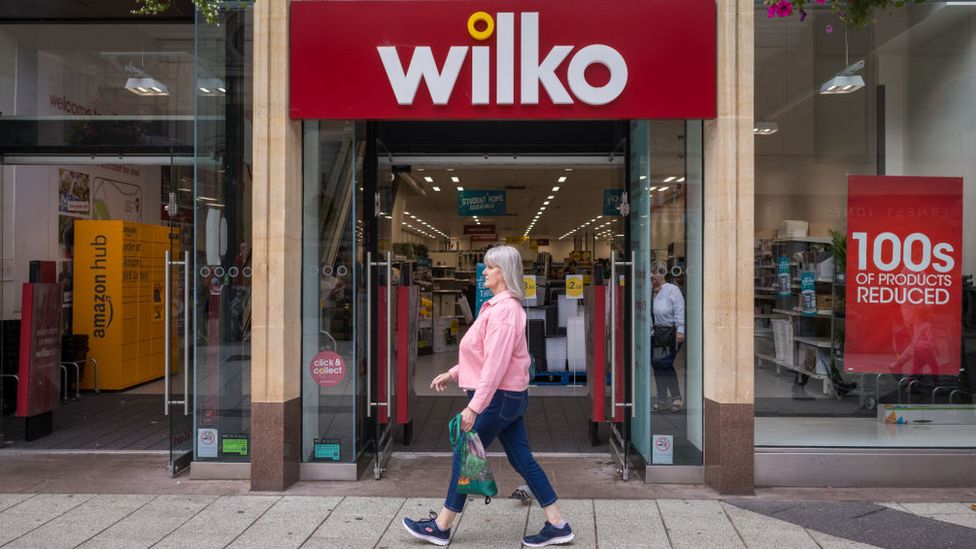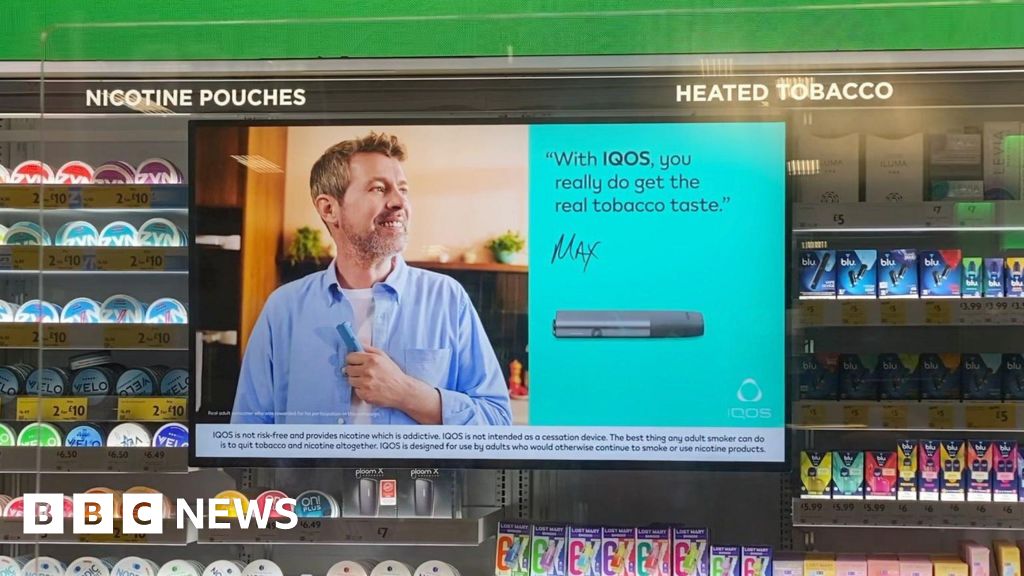ARTICLE AD BOX
 Image source, Getty Images
Image source, Getty Images
By Faarea Masud, Emma Simpson & Michael Race
BBC News
Wilko, the discount homewares retailer, is facing its most crucial few weeks in its 90-year history.
On Thursday, the chain was forced to appoint an administrator after it failed to find a buyer to save the cash-strapped business.
That decision puts 12,500 jobs at risk and means 400 shops could close.
But does it mean that Wilko will disappear from UK High Streets forever? Or is there still hope for the firm and its many workers?
Who might buy Wilko?
Wilko is a business that ran out of time and money.
No-one was prepared to stump up the £75m or so that was needed straight away to get the chain back on track and pay suppliers to fill its sparse shelves.
"The scale of it was just too huge, without a guarantee of success," said a source familiar with the situation.
Now the chain is in administration, a potential buyer would not be responsible for any of Wilko's debts, making a purchase more attractive.
The BBC understands there is interest, including from two retailers.
Depending on how things play out, administrators are said to be hopeful that many shops might be saved - which could number "in the hundreds".
If a rival does buy Wilko, it raises a question about the survival of the brand. On the other hand, a turnaround business could make an offer to take Wilko on, albeit in a smaller form.
Industry experts believe any buyer will have to significantly cut costs and close stores. There could be an outcome by the end of next week.
But if a rescue deal isn't possible, then Wilko will go into liquidation and start to be wound down.
PwC, which has been appointed as the administrator, declined to comment.
What does it mean for High Streets?
Wilko has been a stalwart of Britain's High Streets for decades. For that reason, its demise will have "significant implications" for other businesses, according to the British Independent Retailers Association (Bira).
"Its plight serves as a stark reminder of the challenges faced by traditional retailers in an ever-evolving market environment," said Andrew Goodacre, chief executive of the trade body.
This Twitter post cannot be displayed in your browser. Please enable Javascript or try a different browser.View original content on Twitter
The BBC is not responsible for the content of external sites.
Allow Twitter content?
This article contains content provided by Twitter. We ask for your permission before anything is loaded, as they may be using cookies and other technologies. You may want to read Twitter’s cookie policy, external and privacy policy, external before accepting. To view this content choose ‘accept and continue’.
The BBC is not responsible for the content of external sites.
The retailer has faced fierce competition in recent years from rivals B&M, Home Bargains, The Range and Poundland.
Many of its 400 stores are also located in High Streets where costs are generally higher, whereas its competitors are often found in retail parks.
But for Nzinga Zee Orgill who works at The Brickhouse, a bar in Slough across the road from a Wilko, the long-standing store is "absolutely essential" for people in the area.
"It's a reason why people come to this part of the High Street, without it being here there are very little options left," she said.
New figures from the British Retail Consortium (BRC) show some 6,000 shops have closed in Britain in the past five years, with High Streets in the North and Midlands seeing the most empty stores.
Helen Dickinson, chief executive of the BRC, said the government must review a "broken business rates system".
Business rates are a kind of tax for commercial properties, which critics say have not kept up with changes in retailing and put bricks-and-mortar traders at a disadvantage to their internet-only rivals.
Among Wilko's portfolio of more than 400 shops are 20 that used to belong to Woolworths, a much-loved homewares retailer that went bust in 2008.
Now Wilko could be headed towards the same fate.
Are Wilko workers' pensions safe?
Wilko closed its defined benefit pension scheme to new members a decade ago but nearly 2,000 people will want to know what will now happen to their retirement payments.
The BBC understands that there is a shortfall of around £50m in Wilko's pension pot.
More than 740 workers are currently claiming their pensions, according to independent pension consultant John Ralfe. A further 1,145 are contributing to the fund but are not yet of pension-claiming age.
Mr Ralfe said that when a company collapses, it may not have enough assets to sell to plug any holes in its pension fund.
However, he reckons Wilko will have sufficient assets to offload to cover any shortfall.
For now, Wilko's pension scheme will be assessed by the Pension Protection Fund (PPF), which protects a company's retirement fund if the firm becomes insolvent.
A PPF spokesperson said: "We understand this must be a worrying time for the pension scheme members and we'd like to assure those members that we're here to protect them if needed."
How much time does Wilko have left?
There is no fixed timetable for a sale by administrators.
But there will be pressure to conclude a deal quickly, said Jeremy Whiteson, restructuring and insolvency partner at law firm Fladgate.
He said that PwC's fees, for acting as the administrator, will add up quickly while other costs such as staff wages will continue. Wilko's workers have been told that they will continue to be paid and all the stores will remain open for now.
"The administration will also damage the reputation of the brand," said Mr Whiteson. "It may lead to staff departures in a tight labour market and discourage companies from continuing supplies."
But given that Wilko has been around for 90 years, and as a much loved and staple of many High Streets, the brand could endure.
Insolvency expert Tania Clench at law firm Cripps said: "I cannot see that the brand itself will be affected in any more of an adverse way - the brand is the brand.
"It will just take the right buyer to come along to save the business in some form or other."
If it does survive, however, Ms Clench said it "will be in need of a revamp".

 1 year ago
73
1 year ago
73








 English (US) ·
English (US) ·